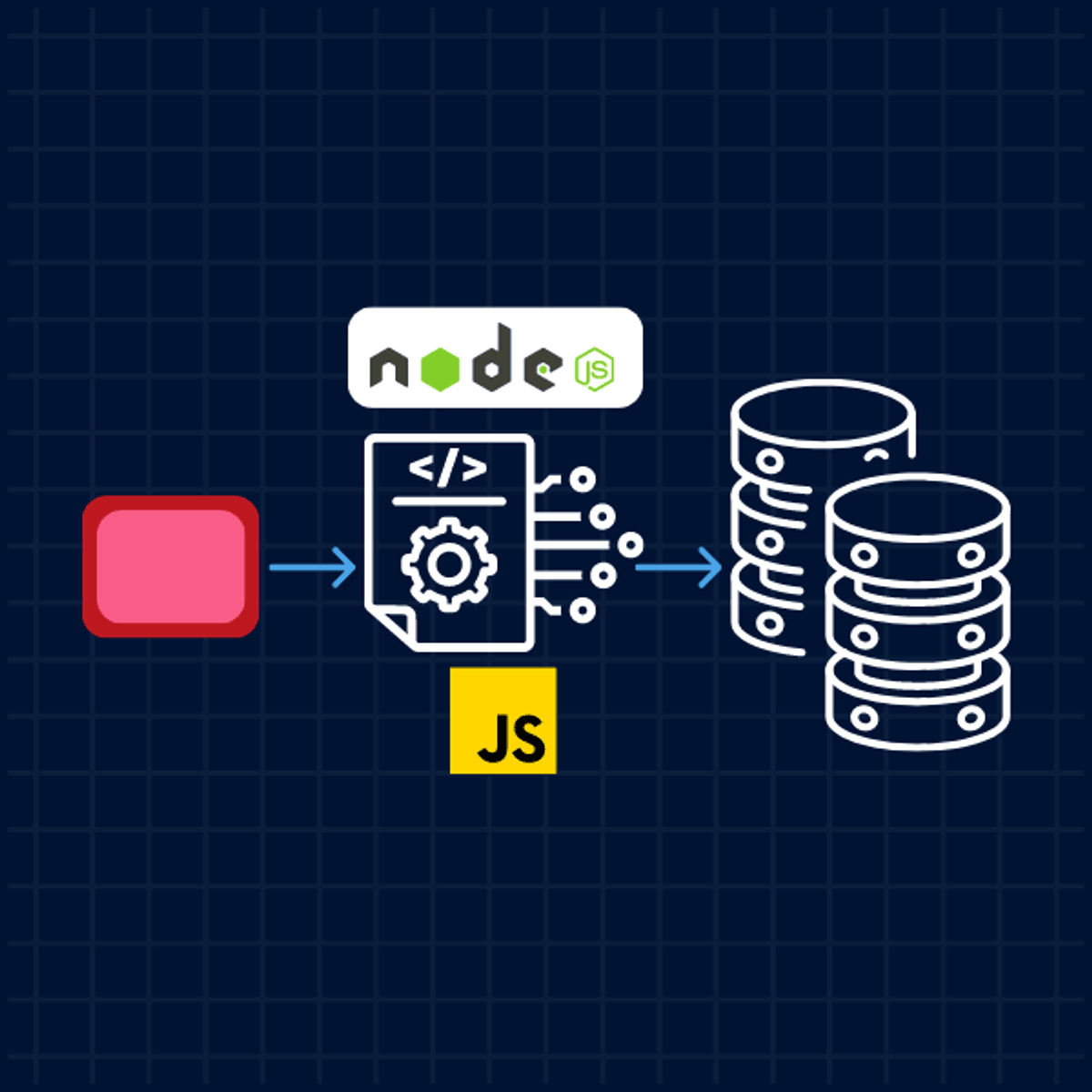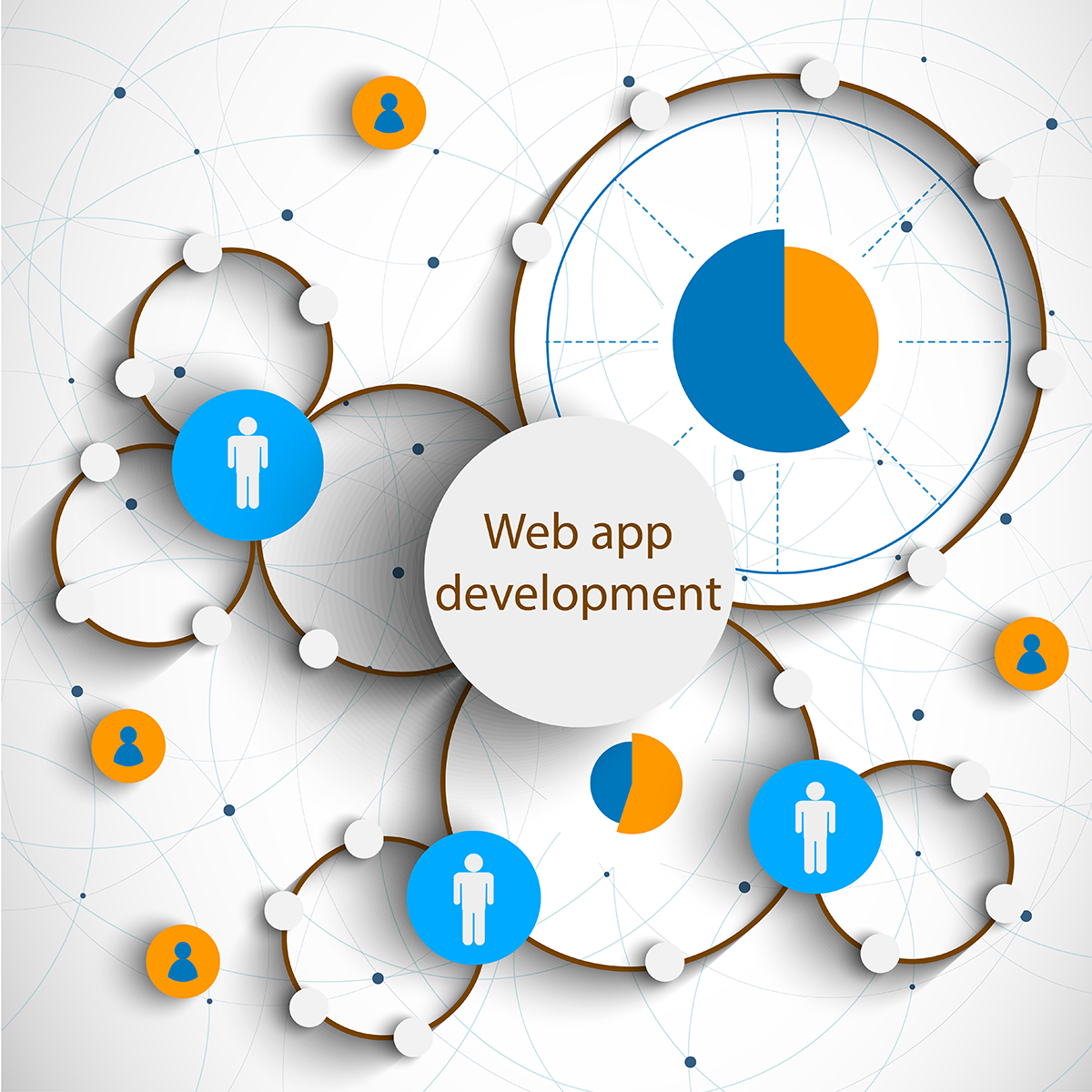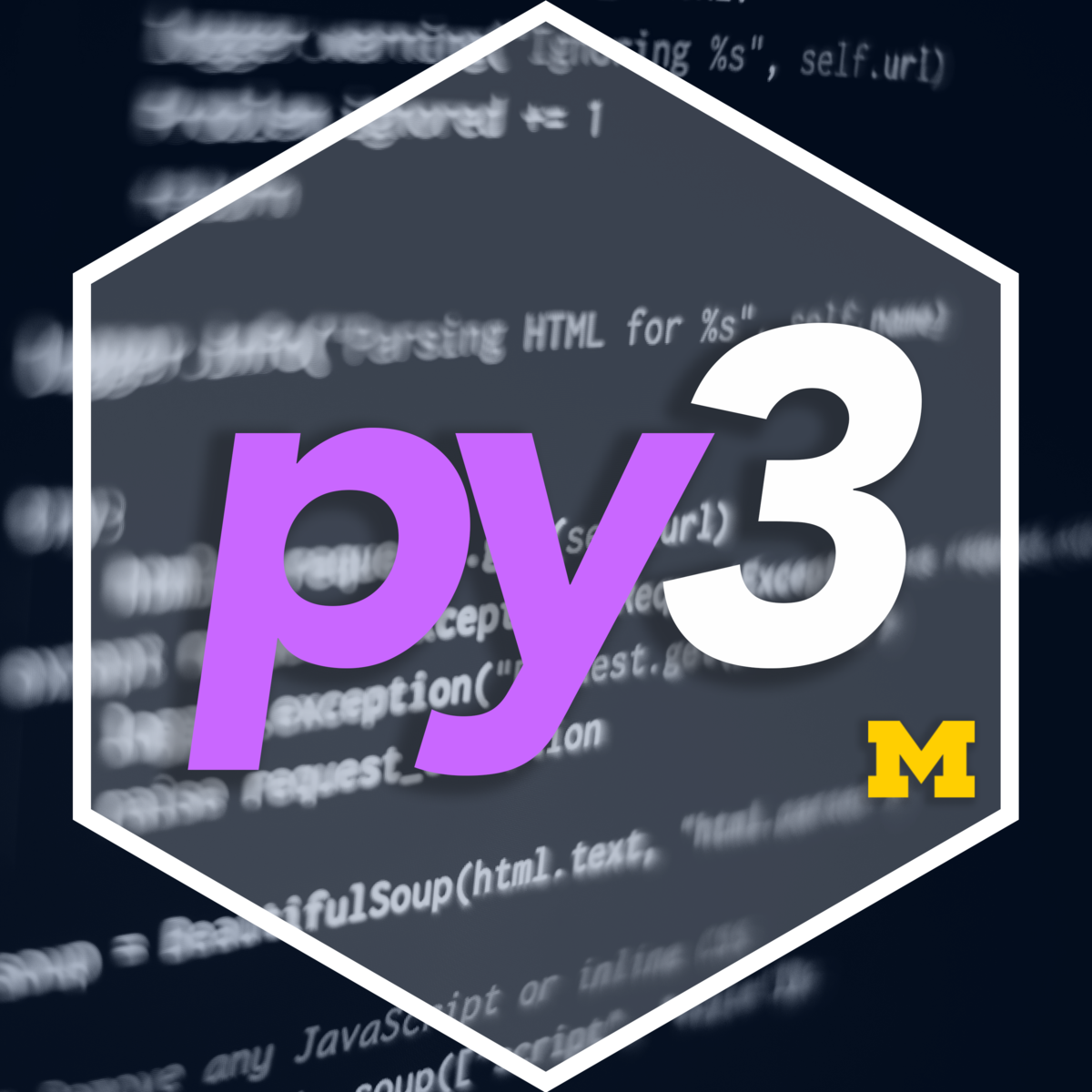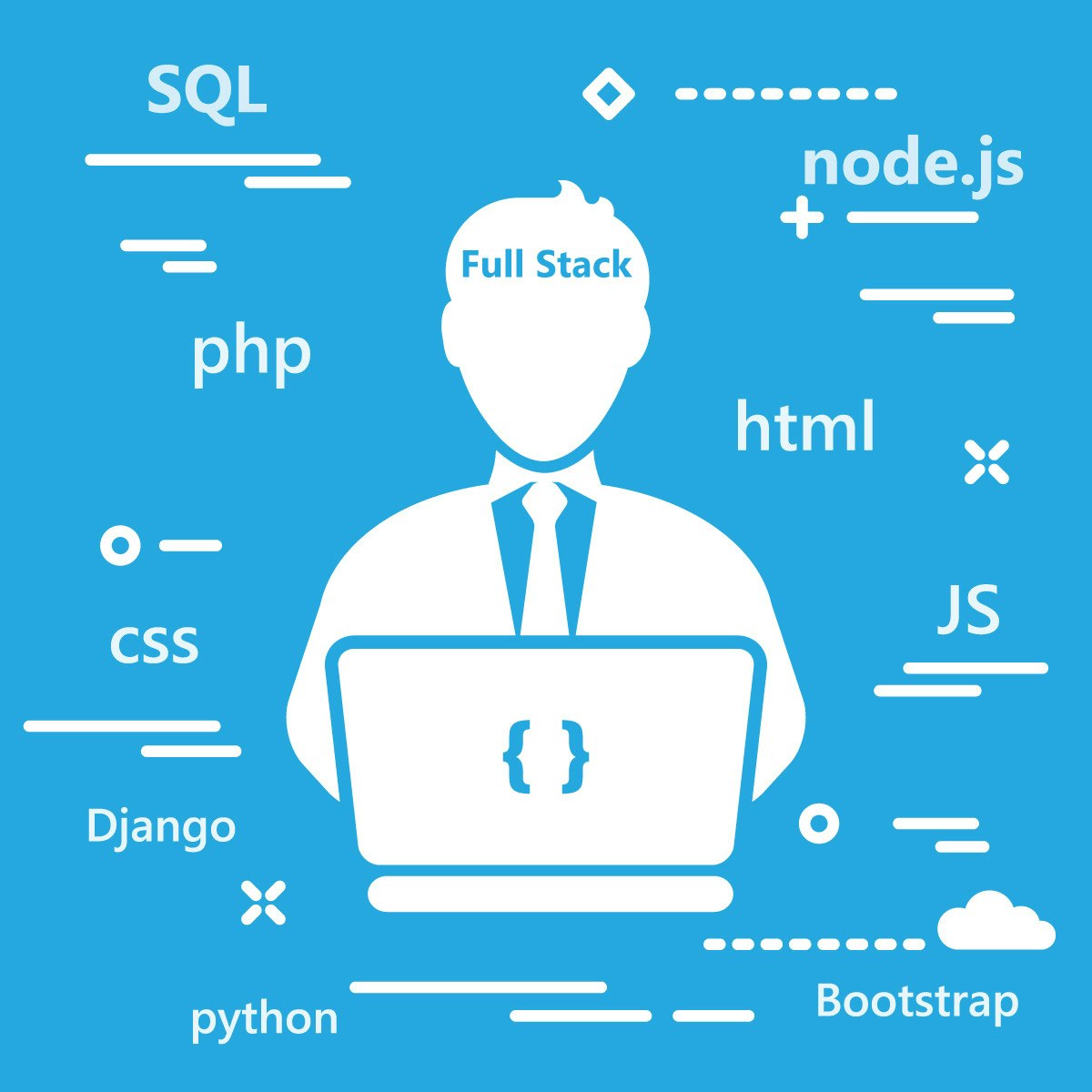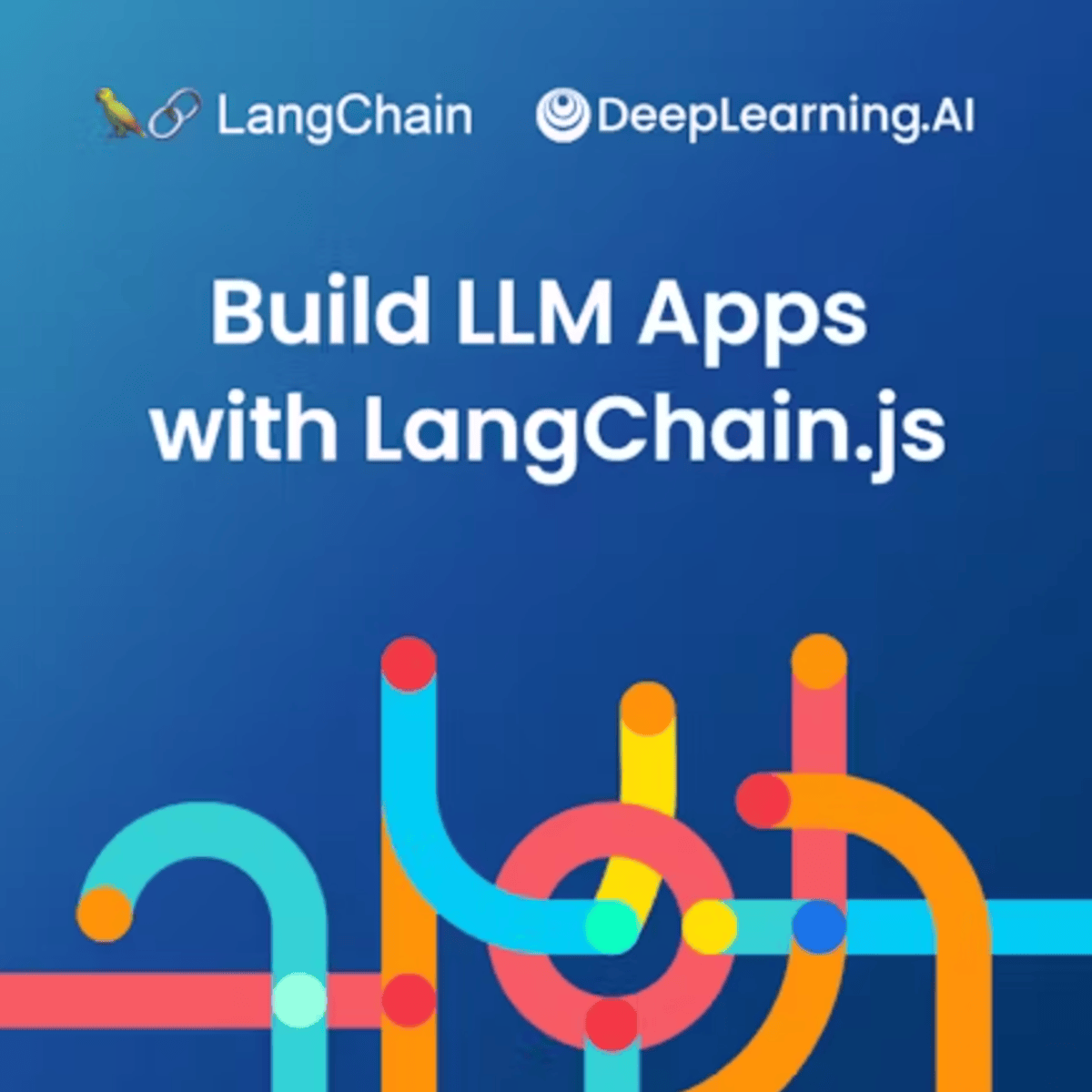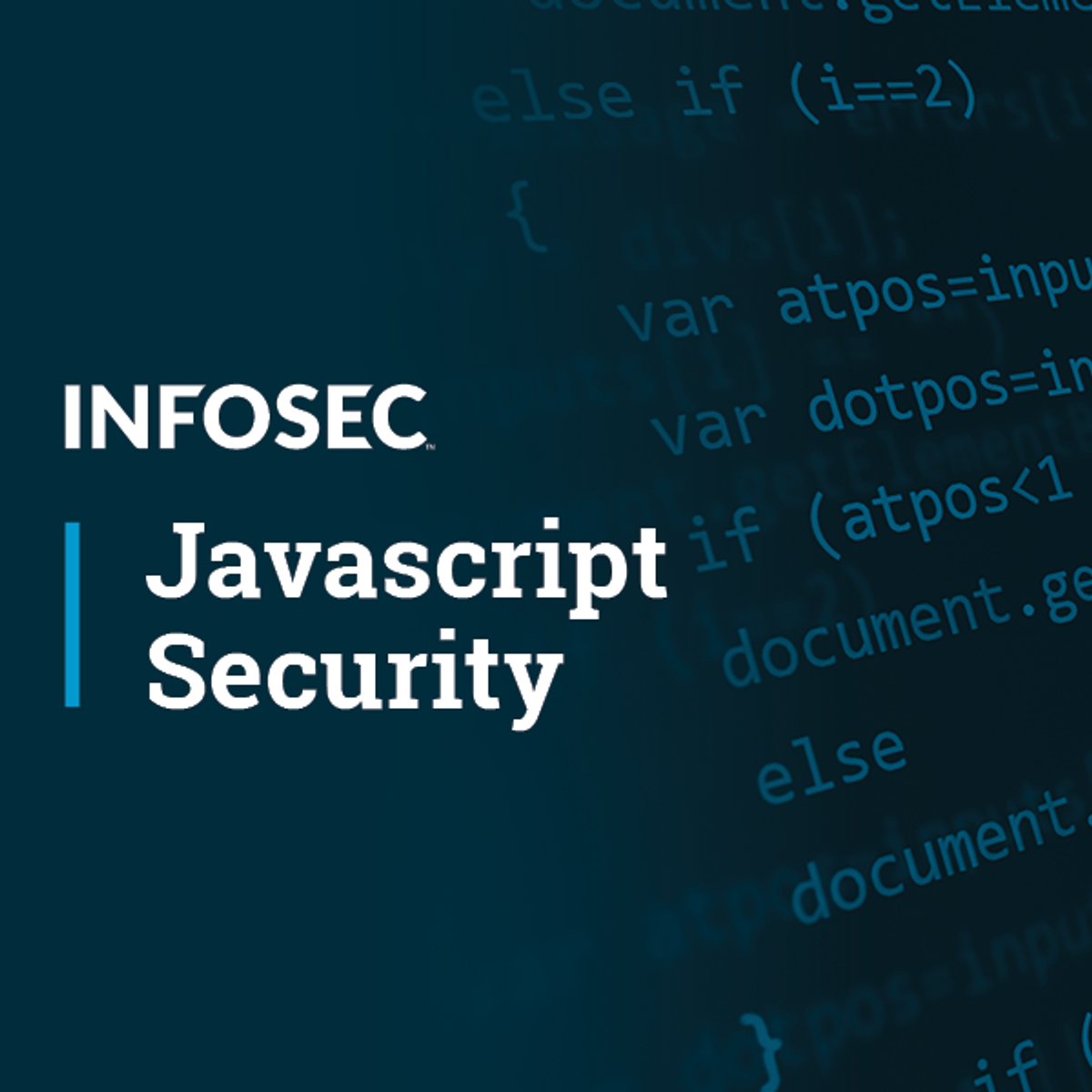Back-End Developer
Exploring a Career as a Back-End Developer
A Back-End Developer is the architect and engineer behind the scenes of websites and applications. While users interact with the front-end (what they see and click), the back-end developer builds and maintains the server-side logic, databases, and APIs that make everything work. Think of it as the engine room of a ship – unseen by passengers but essential for the journey.
Working as a back-end developer involves solving complex problems, building scalable systems, and ensuring data security and integrity. It's a role that blends logic, creativity, and technical skill, offering the satisfaction of creating the invisible structures that power the digital world. If you enjoy building systems, working with data, and understanding how things operate fundamentally, this career path could be highly rewarding.
What Does a Back-End Developer Do?
Defining the Back-End Landscape
Back-end development focuses on the server side of applications. This includes everything the user doesn't directly interact with but that is crucial for the application's functionality. Developers in this role manage the interchange of data between the server and the users, ensuring performance, security, and responsiveness.
The scope involves writing server-side code, managing databases where application data is stored, and building Application Programming Interfaces (APIs). These APIs act as messengers, allowing the front-end (user interface) to communicate and request information from the back-end systems.
Essentially, back-end developers ensure that the digital plumbing works correctly, data flows efficiently, and the application can handle user requests reliably and securely. They build the foundation upon which user-facing features are built.
This introductory course provides a great overview of the role and fundamental concepts.
Distinguishing Back-End, Front-End, and Full-Stack
It's helpful to understand how back-end development differs from related roles. Front-end developers focus on the user interface (UI) and user experience (UX) – the visual elements, layout, and interactivity that users directly engage with using languages like HTML, CSS, and JavaScript.
Back-end developers, as discussed, handle the server, database, and application logic. They work with languages like Python, Java, Ruby, Node.js, or PHP, and database technologies like SQL or NoSQL.
A Full-Stack Developer possesses skills in both front-end and back-end development. They can build and manage all aspects of a web application, from the user interface to the server and database. This requires a broad understanding of various technologies across the entire development stack.
These courses offer foundational knowledge for those interested in the broader scope of web development.
Core Back-End Responsibilities
The daily tasks of a back-end developer revolve around building and maintaining the core components of software systems. A primary responsibility is managing databases – designing database schemas, writing queries to store and retrieve data, and ensuring data integrity and performance.
Another key area is developing APIs. Back-end developers create endpoints that front-end developers or other services can use to access data or trigger actions. This involves defining request/response formats (like JSON) and ensuring secure and efficient communication.
They also write the server-side logic, which includes processing user input, interacting with the database, performing calculations, and implementing business rules. This code runs on the server and dictates how the application behaves behind the scenes.
Deploying applications to servers, managing server infrastructure (often using cloud platforms), monitoring performance, and ensuring security are also crucial aspects of the role. They work to make systems scalable, meaning they can handle increasing amounts of traffic and data.
This course delves into server-side logic specifically.
Essential Skills for Success
Success as a back-end developer requires a mix of technical prowess and softer skills. Proficiency in one or more server-side programming languages (like Python, Java, Node.js, Ruby, PHP, C#) is fundamental. Understanding database technologies, both SQL (like PostgreSQL, MySQL) and NoSQL (like MongoDB, Cassandra), is also crucial.
Knowledge of web server technologies (like Apache, Nginx), API design principles (like REST or GraphQL), and version control systems (Git is standard) are essential technical skills. Familiarity with cloud platforms (AWS, Azure, Google Cloud) and containerization (Docker, Kubernetes) is increasingly important.
Beyond technical abilities, strong problem-solving skills are paramount for debugging issues and designing efficient systems. Good communication is needed for collaborating with front-end developers, designers, project managers, and other stakeholders. Attention to detail ensures code quality and system reliability.
Core Technologies and Tools
Mastering the tools of the trade is essential for any back-end developer. The technology landscape is vast and constantly evolving, but certain core areas form the bedrock of back-end development.
Server-Side Programming Languages
Choosing the right programming language often depends on the project's needs, team expertise, and performance requirements. Popular choices include Python (often with frameworks like Django or Flask), known for its readability and extensive libraries.
Java (often with Spring framework) is widely used in enterprise environments due to its robustness and scalability. JavaScript, via Node.js, allows developers to use the same language on both front-end and back-end, known for its speed in I/O operations.
Other significant languages include Ruby (with Ruby on Rails), PHP (powering much of the web, often with frameworks like Laravel), C# (popular in the Microsoft ecosystem with .NET), and Go (known for concurrency and performance).
These comprehensive guides cover popular back-end languages and frameworks.
These books offer deep dives into essential languages.
Database Management Systems (SQL vs. NoSQL)
Databases are where application data lives. Back-end developers must understand how to interact with them effectively. Relational databases (SQL) like PostgreSQL, MySQL, and SQL Server structure data in tables with predefined schemas. They are excellent for structured data and ensuring consistency (ACID compliance).
NoSQL databases, such as MongoDB, Cassandra, and Redis, offer more flexibility. They can handle unstructured or semi-structured data and often provide better scalability and performance for specific use cases, like large datasets or high-traffic applications. They come in various types: document stores, key-value stores, column-family stores, and graph databases.
Choosing between SQL and NoSQL depends on the application's data structure, scalability needs, and consistency requirements. Many modern applications use a hybrid approach, leveraging both types of databases for different purposes.
This specialization provides in-depth knowledge of database interactions.
API Design Principles (REST, GraphQL)
APIs (Application Programming Interfaces) are the communication contracts between different software components. Back-end developers design and build APIs that allow front-end applications or other services to interact with the back-end logic and data.
Representational State Transfer (REST) has been the dominant architectural style for designing networked applications. RESTful APIs use standard HTTP methods (GET, POST, PUT, DELETE) and structure data typically in JSON format. They are stateless and rely on resource identifiers (URLs).
GraphQL is a newer query language for APIs developed by Facebook. It allows clients to request exactly the data they need and nothing more, potentially reducing the number of requests and the amount of data transferred compared to REST. It provides a single endpoint for all queries.
Understanding the principles behind designing clean, efficient, and secure APIs is a critical skill for back-end developers, regardless of the chosen style (REST, GraphQL, gRPC, etc.).
Cloud Platforms and Containerization
Modern back-end development heavily relies on cloud platforms like Amazon Web Services (AWS), Microsoft Azure, and Google Cloud Platform (GCP). These platforms provide infrastructure services (servers, databases, networking) on demand, allowing developers to build and deploy applications without managing physical hardware.
Containerization technologies, primarily Docker, package applications and their dependencies into isolated containers. This ensures consistency across different environments (development, testing, production). Container orchestration tools like Kubernetes automate the deployment, scaling, and management of containerized applications.
Familiarity with deploying applications to the cloud, using containerization, and understanding concepts like serverless computing (e.g., AWS Lambda, Azure Functions) are increasingly vital skills for back-end developers.
These courses cover deploying applications using modern cloud and container technologies.
Version Control Systems (Git)
Version control systems (VCS) track changes to code over time, enabling collaboration among developers and allowing them to revert to previous versions if needed. Git is the de facto standard for version control in software development.
Using Git effectively involves understanding concepts like repositories, branches, commits, merging, and pull requests. Platforms like GitHub, GitLab, and Bitbucket provide hosting for Git repositories and additional collaboration features.
Proficiency in Git is non-negotiable for any developer working in a team environment. It facilitates collaboration, prevents code loss, and helps manage different features and bug fixes concurrently.
This tool helps manage code development and collaboration efficiently.
The Back-End Developer Career Path
Embarking on a career as a back-end developer opens up numerous opportunities for growth and specialization. The journey typically progresses through several stages, each demanding new skills and offering different challenges and rewards.
Starting Out: Entry-Level Roles
Most back-end developers begin their careers in junior developer or software engineer roles. Internships during university studies can also provide valuable initial experience. In these positions, the focus is on learning the fundamentals, understanding the team's codebase and processes, and contributing to smaller features or bug fixes under supervision.
Entry-level developers typically work closely with senior team members, absorbing best practices in coding, testing, and deployment. Key goals at this stage include building proficiency in core technologies, understanding software development lifecycles, and developing effective collaboration skills.
Building a solid foundation in programming, databases, and possibly a specific framework is crucial. Contributing to projects, even small ones, helps build practical experience and a portfolio.
These courses help prepare for entry-level roles and interviews.
Mid-Career Growth and Specialization
After gaining a few years of experience, back-end developers typically advance to mid-level roles. At this stage, they take on more responsibility, work more independently, and tackle more complex tasks. They might mentor junior developers and contribute significantly to system design discussions.
Mid-career often presents opportunities for specialization. Developers might choose to deepen their expertise in areas like database optimization, cloud infrastructure, API design, security, distributed systems, or a specific programming language or framework. Some might focus on performance tuning, scalability challenges, or integrating specific technologies like AI/ML.
Continuous learning is vital as technologies evolve rapidly. Pursuing certifications or advanced online courses can help solidify specialized knowledge and demonstrate expertise in chosen areas.
These courses cover more advanced topics relevant to mid-career developers.
Reaching Senior and Lead Positions
Senior Back-End Developers possess deep technical expertise and extensive experience. They often lead the design and implementation of major features or systems, make critical technical decisions, and solve the most challenging problems. They are expected to mentor other engineers and contribute to the team's technical strategy.
Lead developers or tech leads take on additional leadership responsibilities. While still technically involved, they also guide the technical direction of a team or project, coordinate efforts among engineers, ensure code quality standards are met, and often liaise with product managers and other stakeholders.
Reaching these levels requires not only advanced technical skills but also strong leadership, communication, and architectural design capabilities. Understanding the broader business context becomes increasingly important.
These advanced courses cater to those aiming for or already in senior roles.
Transitions to Architecture or Management
Experienced back-end developers often face a choice between deepening their technical expertise or moving into management roles. Some transition into roles like Software Architect, where they design high-level structures for software systems, define technical standards, and evaluate technology choices across multiple teams or the entire organization.
Others move into Engineering Management, focusing more on leading teams, managing projects, developing people, and aligning engineering efforts with business goals. This path requires strong leadership, organizational, and interpersonal skills, shifting focus from individual technical contribution to team enablement and strategy.
Both paths offer significant growth opportunities. The choice depends on individual interests – whether one prefers solving complex technical problems directly or leading and empowering others to do so.
Salary Expectations
Salaries for back-end developers vary significantly based on experience, location, company size, industry, and specific skill set. Generally, back-end development is a well-compensated field due to the high demand for skilled professionals.
Entry-level developers can expect competitive starting salaries, which typically increase substantially with experience. Mid-level and senior developers often command high salaries, reflecting their expertise and impact. Specialized skills, particularly in high-demand areas like cloud computing, data engineering, or cybersecurity, can further boost earning potential.
Resources like the U.S. Bureau of Labor Statistics provide data on software developer salaries, although specific back-end roles might not be broken out separately. Consulting salary reports from tech recruiting firms like Robert Half or Hired can offer more granular insights for specific regions and roles.
Formal Education Pathways
While self-teaching and bootcamps are viable routes into back-end development, a formal education provides a strong theoretical foundation and structured learning environment that many find beneficial.
Relevant University Degrees
The most common undergraduate degrees for aspiring back-end developers are Computer Science (CS) and Software Engineering. A CS degree provides a broad understanding of computing principles, algorithms, data structures, operating systems, and theoretical foundations.
Software Engineering programs often focus more specifically on the practical aspects of designing, developing, testing, and maintaining software systems. Related degrees in Computer Engineering, Information Technology, or even Mathematics can also provide relevant foundational knowledge.
A degree signals a certain level of foundational knowledge and commitment, which can be advantageous, particularly when applying to larger companies or more traditional organizations. Explore relevant programs on OpenCourser's Computer Science section.
Key University Coursework
Regardless of the specific degree title, certain coursework is particularly valuable for back-end development. Courses on Data Structures and Algorithms are fundamental, teaching how to organize data efficiently and solve problems systematically.
Database courses cover database design, SQL, and database management systems. Operating Systems courses explain how computers manage resources, which is relevant for server management. Courses on Networking provide understanding of how data travels across the internet (TCP/IP, HTTP).
Software Engineering courses teach principles of software design, testing, project management, and collaboration. Courses on Distributed Systems are increasingly relevant for building scalable, modern applications. Programming language courses build fluency in languages commonly used in the back-end.
These courses cover fundamental computer science topics crucial for back-end roles.
Graduate Programs and Research
While not typically required for most back-end development roles, a Master's or PhD degree can open doors to specialized positions, research roles, or careers in academia. Graduate programs allow for deeper specialization in areas like distributed systems, database theory, artificial intelligence, cybersecurity, or theoretical computer science.
A Master's degree might be pursued by those looking to deepen their technical knowledge or pivot into a more specialized area after gaining some work experience. A PhD is generally geared towards research-focused roles in industry labs or university settings.
For most industry back-end development positions, practical experience, a strong portfolio, and demonstrated skills are often valued more highly than an advanced degree, but a graduate degree can be a significant asset for certain career paths.
Certifications vs. Degree Value
The value of a formal degree versus professional certifications is a common discussion point. A university degree provides broad, deep theoretical grounding and signifies a long-term commitment to learning. It often covers foundational concepts that remain relevant even as specific technologies change.
Certifications, on the other hand, typically focus on specific technologies, platforms (like AWS, Azure, Google Cloud), or skills (like cybersecurity). They demonstrate proficiency in a particular tool or area and can be valuable for showcasing specialized expertise, especially when changing roles or seeking promotions.
Neither path guarantees success. Many successful back-end developers have degrees, many have certifications, many have both, and many have neither. Ultimately, demonstrated ability to build, maintain, and troubleshoot back-end systems, often showcased through a portfolio and technical interviews, is the most critical factor in hiring decisions.
Self-Directed Learning and Career Transitions
Not everyone enters back-end development through a traditional computer science degree. Many successful developers are self-taught or transition from other fields. This path requires discipline, resourcefulness, and a passion for learning, but it is absolutely achievable.
If you're considering a career change or prefer learning independently, know that the journey is challenging but rewarding. Setting realistic goals, staying persistent, and leveraging the wealth of available online resources are key. Remember that building foundational knowledge takes time, so be patient with yourself and celebrate small victories along the way.
Building Foundational Programming Skills
The first step is acquiring solid programming fundamentals. Choose a beginner-friendly language often used in back-end development, such as Python or JavaScript (Node.js). Focus on understanding core concepts like variables, data types, control structures (loops, conditionals), functions, and object-oriented or functional programming principles.
Online courses are invaluable here. Platforms offer structured paths from basic syntax to more advanced topics. Work through exercises, build small projects, and don't just watch videos – actively code along and experiment. OpenCourser offers a vast library; start by exploring Programming or Web Development categories.
Consistency is key. Dedicate regular time to learning and practice, even if it's just an hour a day. Understanding the "why" behind the code, not just the "how," builds a stronger foundation.
These courses are excellent starting points for foundational programming and web development concepts.
These books provide comprehensive introductions to core web technologies.
Leveraging Online Courses and Resources
Online courses offer flexibility and access to up-to-date content on specific back-end technologies, databases, APIs, cloud platforms, and more. Many courses include hands-on labs and projects, crucial for practical skill development. Look for courses offered by reputable institutions or experienced instructors.
Beyond courses, utilize documentation, tutorials, technical blogs, and forums like Stack Overflow. OpenCourser's Learner's Guide provides tips on structuring your learning, staying motivated, and making the most of online resources. You can use features like "Save to list" on OpenCourser to curate your learning path.
Remember, online learning requires self-discipline. Create a schedule, set achievable goals, and track your progress. Don't hesitate to revisit concepts until they click.
These courses dive deeper into specific back-end languages and frameworks, suitable for self-learners building expertise.
This book is a classic for JavaScript developers, offering deeper insights.
Open Source Contributions and Personal Projects
Theory is important, but practical application solidifies learning. Building personal projects is one of the best ways to practice skills, encounter real-world problems, and create something tangible for your portfolio. Start small – perhaps a simple API, a basic web scraper, or a command-line tool.
Contributing to open-source projects is another excellent way to gain experience. It exposes you to larger codebases, collaborative workflows (using Git, code reviews), and different coding styles. Find projects that interest you, start with small contributions like fixing bugs or improving documentation, and gradually take on more complex tasks.
Both personal projects and open-source contributions demonstrate initiative, practical skills, and passion to potential employers, especially for those without a traditional CS background.
Capstone projects within online courses offer structured opportunities to build significant portfolio pieces.
Portfolio Building and Showcasing Skills
A strong portfolio is crucial, particularly for self-taught developers or career changers. It's your opportunity to showcase your skills and the projects you've built. Your portfolio should include a selection of your best work, demonstrating proficiency in relevant back-end technologies.
For each project, provide a clear description, explain the technologies used, highlight the challenges you overcame, and include links to the live application (if possible) and the source code repository (e.g., on GitHub). Ensure your code is clean, well-commented, and follows best practices.
Your portfolio can be a personal website, a GitHub profile, or a dedicated portfolio platform. Tailor its presentation to highlight skills relevant to the jobs you're applying for.
Mentorship and Community Engagement
Learning in isolation can be difficult. Engaging with the developer community provides support, learning opportunities, and networking possibilities. Join online forums, participate in local meetups (virtual or in-person), attend conferences, and follow influential developers on social media.
Finding a mentor – an experienced developer willing to offer guidance and advice – can be incredibly valuable. Mentors can help navigate challenges, suggest learning resources, provide feedback on projects, and offer insights into the industry.
Don't be afraid to ask questions and share your own learning journey. The tech community often thrives on collaboration and mutual support. Contributing back, even by answering questions you recently figured out, reinforces your own understanding.
Evolving Landscape: Industry Trends
The world of back-end development is dynamic, constantly influenced by technological advancements and shifting industry priorities. Staying aware of these trends is important for career growth and ensuring your skills remain relevant.
The Rise of Serverless Architectures
Serverless computing, despite its name, still involves servers, but developers don't manage the underlying infrastructure. Platforms like AWS Lambda, Azure Functions, and Google Cloud Functions allow developers to deploy code that runs in response to events, automatically scaling based on demand.
This approach can simplify deployment, reduce operational overhead, and potentially lower costs, especially for applications with variable workloads. Back-end developers increasingly need to understand serverless concepts, event-driven architectures, and Function-as-a-Service (FaaS) platforms.
Adoption is growing, with many organizations incorporating serverless components into their systems. Reports from firms like Gartner often highlight the increasing prevalence and evolving best practices for serverless technologies.
These courses explore serverless concepts and deployment.
AI and Machine Learning Integration
Artificial Intelligence (AI) and Machine Learning (ML) are increasingly finding their way into back-end systems. This can range from integrating pre-trained models via APIs for tasks like natural language processing or image recognition, to building custom ML models that power core application features.
Back-end developers may need to work with data scientists to deploy models, build APIs to serve predictions, manage ML pipelines, or incorporate AI-powered features into applications. Understanding basic AI/ML concepts and tools for MLOps (Machine Learning Operations) is becoming a valuable asset.
The use of AI tools, like code generation assistants (e.g., GitHub Copilot), is also changing development workflows, potentially increasing productivity but also requiring skills in effectively prompting and verifying AI-generated code.
These courses touch upon AI integration in development.
Edge Computing's Growing Role
Edge computing involves processing data closer to where it's generated, rather than sending it all back to a centralized cloud server. This reduces latency, saves bandwidth, and can enhance privacy and resilience, making it suitable for applications like IoT devices, real-time analytics, and content delivery networks.
For back-end developers, this trend means thinking about deploying logic and data processing capabilities not just in central clouds but also at edge locations. This involves different architectural considerations and potentially working with specialized edge platforms and technologies.
While still evolving, edge computing represents a significant shift in how distributed systems might be architected in the future, particularly for specific industries and use cases.
Heightened Cybersecurity Demands
As cyber threats become more sophisticated, security is a paramount concern in back-end development. Developers must build systems that are resilient against attacks, protect sensitive user data, and comply with privacy regulations (like GDPR or CCPA).
This involves implementing secure coding practices, using authentication and authorization mechanisms correctly, protecting against common vulnerabilities (like SQL injection or cross-site scripting), encrypting data, and staying updated on security best practices and emerging threats.
Security cannot be an afterthought; it must be integrated throughout the software development lifecycle. Back-end developers play a critical role in building and maintaining secure applications.
Sustainability in Infrastructure Design
There is a growing awareness of the environmental impact of digital infrastructure. Data centers consume significant amounts of energy. This has led to increased focus on "Green IT" and designing more energy-efficient back-end systems.
This can involve optimizing code for performance to reduce server load, choosing energy-efficient cloud providers or regions, designing systems that scale down effectively during idle periods, and being mindful of data transfer costs and associated energy consumption.
While not yet a primary driver for all projects, sustainability considerations are likely to become more important, influencing technology choices and architectural decisions in back-end development.
Navigating Challenges in Back-End Development
While rewarding, a career in back-end development comes with its share of challenges. Understanding these potential hurdles can help aspiring and current developers prepare and build resilience.
Balancing Scalability and Performance
Building systems that can handle growth (scalability) while remaining fast and responsive (performance) is a constant balancing act. Techniques that improve scalability might sometimes introduce latency, and optimizing for raw speed might make scaling harder.
Developers must make informed trade-offs based on application requirements. This involves understanding performance bottlenecks, choosing appropriate database technologies, designing efficient algorithms, implementing caching strategies, and effectively utilizing cloud infrastructure.
Continuous monitoring and performance testing are essential to identify issues and ensure the system meets user expectations as it grows.
Modernizing Legacy Systems
Many organizations rely on older "legacy" systems built with outdated technologies or architectures. Modernizing these systems – updating them to use newer technologies, improving maintainability, or migrating them to the cloud – presents significant challenges.
This often involves understanding complex, poorly documented code, ensuring backward compatibility, managing data migration, and minimizing disruption to ongoing operations. It requires careful planning, technical expertise across old and new systems, and strong problem-solving skills.
While challenging, modernizing legacy systems can also be rewarding, leading to significant improvements in performance, security, and developer productivity.
Complexities of Cross-Team Collaboration
Back-end developers rarely work in isolation. They collaborate closely with front-end developers, mobile developers, DevOps engineers, database administrators, QA testers, product managers, and designers. Effective communication and coordination are crucial but can be challenging.
Ensuring APIs meet the needs of front-end teams, coordinating deployments with DevOps, resolving bugs identified by QA, and translating product requirements into technical solutions all require clear communication, empathy, and a collaborative mindset.
Working effectively across different teams with varying priorities and technical backgrounds is a skill that develops with experience.
Keeping Pace with Technological Change
The technology landscape evolves rapidly. New programming languages, frameworks, databases, cloud services, and development practices emerge constantly. Keeping skills up-to-date requires a commitment to continuous learning.
This can feel overwhelming at times. It's important to focus on strong fundamentals, which remain relevant even as specific tools change. Prioritize learning technologies relevant to your current role or career goals, rather than trying to master everything.
Leveraging online courses, reading technical blogs, attending conferences, and participating in the developer community are effective ways to stay informed and continuously develop new skills throughout your career.
The Global Job Market for Back-End Developers
The demand for skilled back-end developers is strong globally, driven by the ongoing digital transformation across industries. However, market conditions, popular technologies, and opportunities can vary by region.
High-Demand Regions and Countries
Technology hubs in North America (like Silicon Valley, Seattle, Toronto, Austin), Europe (like London, Berlin, Amsterdam, Dublin), and Asia (like Singapore, Bangalore, Tel Aviv) typically have a high concentration of back-end development jobs.
Demand is often driven by established tech companies, thriving startup ecosystems, and industries undergoing significant digitalization, such as finance, healthcare, and e-commerce. However, opportunities exist worldwide, including in emerging tech markets.
Researching specific city or country job markets through tech job boards, LinkedIn, and local industry reports can provide insights into regional demand and salary expectations.
Remote Work Opportunities
The prevalence of remote work has significantly increased in the tech industry, including for back-end developers. Many companies now offer fully remote or hybrid work arrangements, expanding the talent pool beyond specific geographic locations.
This provides greater flexibility for developers but also increases global competition for roles. Effective communication, self-discipline, and the ability to collaborate asynchronously become even more critical in remote settings.
While remote work offers benefits, some companies still prefer or require in-office presence, especially for certain roles or team structures. Job seekers should clarify remote work policies during the application process.
Visa and Sponsorship Considerations
For those seeking opportunities abroad, navigating visa requirements and finding companies willing to sponsor work permits can be a significant hurdle. Immigration policies vary widely by country and are subject to change.
Some countries have specific visa programs designed to attract skilled tech workers. Large multinational corporations are often better equipped to handle sponsorship processes than smaller startups.
Thorough research into the target country's immigration laws and focusing job searches on companies known to sponsor international talent are essential steps for those looking to relocate internationally.
Cultural Differences and Tech Stacks
Workplace culture can differ significantly across countries and companies. Communication styles, attitudes towards hierarchy, work-life balance expectations, and collaboration practices can vary.
Technology preferences can also show regional trends. While many technologies are global, certain languages or frameworks might be more dominant in specific regions due to historical factors, university curricula, or local industry focus (e.g., Java in enterprise settings, PHP in certain web development markets).
Being aware of potential cultural differences and researching common tech stacks in a target region can help international job seekers adapt more effectively.
Ethical Considerations in Back-End Development
Back-end systems often handle sensitive data and power critical services, making ethical considerations an integral part of the role. Developers have a responsibility to build systems that are not only functional but also fair, secure, and socially responsible.
Data Privacy Implementation
Back-end developers are often custodians of user data. Implementing robust data privacy measures is crucial. This involves securing data storage, encrypting sensitive information, controlling access appropriately, and complying with regulations like GDPR, CCPA, and others.
Developers need to understand principles like data minimization (collecting only necessary data) and purpose limitation (using data only for specified purposes). Designing systems with privacy in mind from the outset ("privacy by design") is essential.
Handling user data ethically and transparently builds trust and is often a legal requirement.
Mitigating Algorithmic Bias
Back-end systems may incorporate algorithms or machine learning models that can inadvertently perpetuate or even amplify societal biases present in the training data. This can lead to unfair or discriminatory outcomes in areas like loan applications, hiring processes, or content recommendations.
While data scientists often develop the models, back-end developers involved in deploying and integrating these systems should be aware of potential biases. This includes advocating for fairness testing, understanding how algorithms make decisions, and implementing safeguards where possible.
Building fair and equitable systems requires conscious effort and collaboration across teams.
Energy-Efficient Coding Practices
As mentioned under industry trends, the energy consumption of digital infrastructure is a growing concern. Back-end developers can contribute to sustainability by writing efficient code that minimizes resource usage (CPU, memory, network).
This involves optimizing database queries, choosing efficient algorithms, reducing unnecessary computations, and designing systems that scale resources effectively based on load. While individual code optimizations might seem small, collectively they can impact the overall energy footprint of large-scale applications.
Considering performance and resource efficiency not just for speed but also for environmental impact is an emerging ethical dimension of software development.
Compliance with International Regulations
Software applications often operate across borders, requiring compliance with various international laws and regulations related to data privacy, security, accessibility, and industry-specific requirements (e.g., HIPAA in healthcare, PCI DSS in finance).
Back-end developers need to be aware of the relevant regulations for their application's domain and user base. They must build systems that meet these requirements, which might involve specific data handling procedures, security protocols, or audit logging capabilities.
Failure to comply can result in significant legal and financial penalties, as well as damage to user trust and company reputation.
Frequently Asked Questions (FAQ)
Navigating the path to becoming a back-end developer often raises common questions. Here are answers to some frequently asked inquiries.
What are the typical requirements to enter the field?
While a Computer Science or related degree is common, it's not strictly required. Demonstrable skills through projects and a portfolio are often more important. Key requirements include proficiency in at least one back-end language (Python, Java, Node.js, etc.), understanding of databases (SQL/NoSQL), knowledge of APIs, familiarity with Git, and strong problem-solving abilities.
Entry-level roles often look for foundational knowledge and a willingness to learn. Internships or contributions to open-source projects can significantly strengthen an application, especially for those without a traditional degree.
These courses cover essential programming concepts.
How do back-end salaries compare to front-end salaries?
Salaries for both back-end and front-end developers are generally competitive and often overlap significantly, depending on experience, location, and specific skills. Historically, back-end roles sometimes commanded slightly higher salaries due to the complexity of managing servers, databases, and core logic.
However, the increasing complexity and importance of front-end development (especially with modern JavaScript frameworks) have narrowed this gap. In many cases, salaries are comparable for developers with similar experience levels. Full-stack developers, proficient in both areas, are also highly valued.
Ultimately, factors like specialized expertise (e.g., cloud architecture, cybersecurity for back-end; advanced framework knowledge, UX/UI skills for front-end), industry, and company size play a larger role in determining salary than the front-end vs. back-end distinction alone.
Is it possible to transition from other tech roles?
Yes, transitioning into back-end development from other tech roles is common. Front-end developers often move to full-stack or back-end roles by learning server-side languages and databases. QA engineers or testers might leverage their system understanding to move into development.
Database administrators possess strong database skills relevant to back-end work. System administrators might transition by focusing more on infrastructure-as-code and cloud platforms. The key is identifying overlapping skills and systematically learning the required back-end technologies, often supplemented by online courses and personal projects.
How might AI impact job prospects for back-end developers?
AI is likely to change aspects of back-end development rather than eliminate the role entirely. AI tools can assist with tasks like code generation, debugging, and testing, potentially increasing productivity. However, they cannot replace the need for developers to understand system architecture, design complex logic, ensure security, and solve unique problems.
The role might evolve, requiring developers to become adept at leveraging AI tools effectively, verifying AI-generated code, and focusing on higher-level design and strategic thinking. Skills in integrating AI/ML models into back-end systems may also become more valuable.
Overall, while AI will influence the workflow, the core responsibilities of designing, building, and maintaining the server-side of applications will likely remain in demand.
What level of math proficiency is needed?
For most standard back-end development roles (e.g., building web APIs, managing databases), a deep understanding of advanced mathematics is not typically required. Basic algebra and logical reasoning are important for problem-solving and understanding algorithms.
However, certain specialized areas might require stronger math skills. Roles involving complex algorithm design, cryptography, machine learning model development, or scientific computing often benefit from knowledge of discrete math, linear algebra, calculus, or statistics.
For general back-end web development, strong logical thinking and problem-solving abilities are more critical than advanced mathematical expertise.
Are there freelance or contract opportunities?
Yes, freelance and contract opportunities are abundant for experienced back-end developers. Businesses of all sizes need help building or maintaining their server-side infrastructure, creating APIs, or managing databases.
Freelancing requires not only technical skills but also business acumen – finding clients, managing projects, handling invoicing, and self-marketing. Contract roles often involve working with agencies or directly with companies on specific projects for a defined period.
Platforms like Upwork, Toptal, or specialized tech contracting agencies connect freelancers and contractors with potential clients. Building a strong portfolio and network is crucial for success in freelance or contract work.
Choosing a career as a Back-End Developer means entering a challenging, dynamic, and rewarding field at the heart of modern technology. It requires continuous learning, strong problem-solving skills, and attention to detail. Whether you pursue a traditional education or forge your own path through self-directed learning and online courses, the opportunities to build the invisible engines that power the digital world are vast. Explore the resources on OpenCourser to start or advance your journey.










